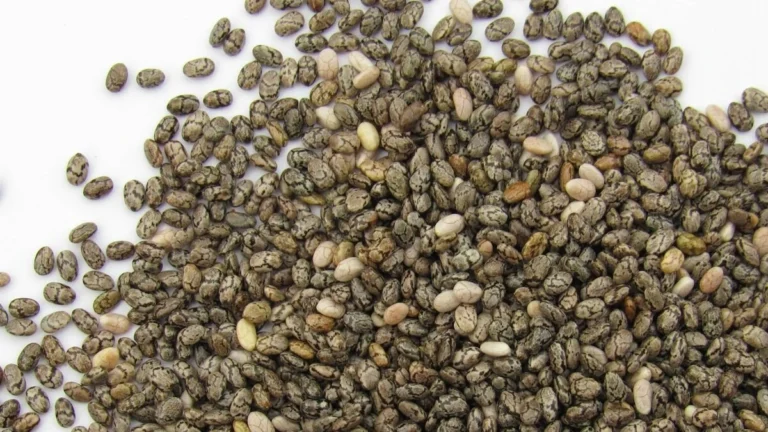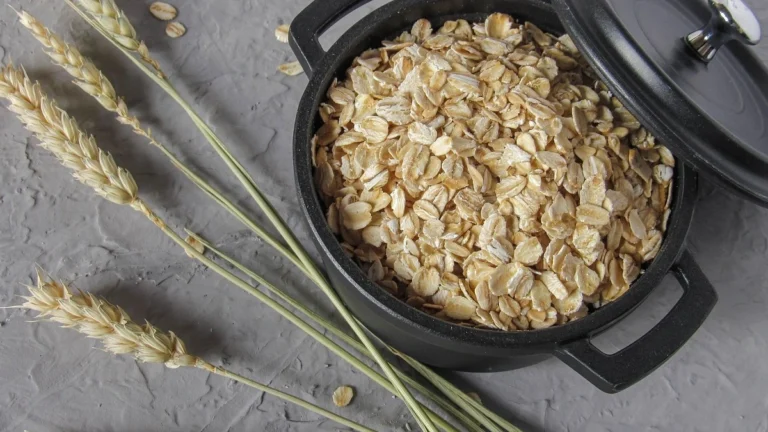INTRODUCTION
Heart attacks (myocardial infarctions) remain a major global health concern. As a pharmacist and health-content writer focused on immunology and pharmacology, you know how important it is to weigh risks and benefits with clarity. With COVID-19 still present in public awareness, one question often asked is, does catching the virus pose a greater risk to heart health than getting vaccinated?
Let’s look at what research shows, compare both risks, explain how each affects the body, and end with practical guidance.
1. THE IMPACT OF COVID-19 INFECTION ON HEART ATTACK RISK
Multiple recent studies show that having COVID-19 is linked to a heightened risk of heart attacks and other cardiovascular events.
• A large analysis found that people infected with SARS-CoV-2 during the first wave had more than double the risk of major cardiovascular events (heart attack, stroke, death) up to nearly three years later.
• For those hospitalized with COVID-19, the risk was nearly fourfold higher compared to uninfected individuals.
• Mechanistic research also shows that the virus can infect arterial plaque and vascular tissue, triggering inflammation that may destabilize plaques and lead to a heart attack or stroke.
• NIH-supported studies further confirm that SARS-CoV-2 can injure the endothelium (the inner lining of blood vessels) and activate immune cells that inflame the cardiovascular system, a pathway strongly linked to post-infection cardiac events.
• Another study concluded that infection with the virus is associated with rapid plaque growth in coronary arteries, further increasing cardiovascular risk.
WHY IT HAPPENS
Here are some interesting ideas we can explore together.
• The virus (SARS-CoV-2) can infect vascular cells, including macrophages and foam cells, within atherosclerotic plaques through receptors like neuropilin. This can set off inflammation and destabilize the plaque.
• Severe lung infection and systemic inflammation during COVID-19 create a surge of inflammatory cytokines, oxidative stress, and increased blood clotting, all known contributors to heart attack risk.
• Acute infection may accelerate existing coronary artery disease by triggering the growth of unstable, non-calcified plaques, setting the stage for acute coronary syndromes.
WHAT THIS MEANS FOR YOU
For the general public, the key takeaway is clear: catching COVID-19 is not just a respiratory threat, it’s a cardiovascular one, too. Infection can significantly raise the risk of heart attacks, even in people with no prior heart disease. Alarmingly, this elevated risk can persist for months to years after infection.
2. THE IMPACT OF COVID-19 VACCINATION ON HEART ATTACK RISK
Let’s uncover what current evidence reveals about heart attack risk after COVID-19 vaccination, and the good news is, the data so far are largely reassuring.
• A recent systematic review and Bayesian meta-analysis found no increase in heart attack (myocardial infarction), arrhythmia, or stroke following COVID 19 vaccination. In fact, it even suggested a protective effect after the third vaccine dose.
• A study conducted in India using Covishield and Covaxin also found no association between vaccination and heart attack risk in real-world hospital data.
• There is, however, a very small known risk of myocarditis (inflammation of the heart muscle) after mRNA vaccines, especially in younger males under 40. But myocarditis is not the same as a heart attack, it has a different cause and typically resolves without lasting harm.
• The National Institutes of Health (NIH) also highlights that large-scale international data continue to support the cardiovascular safety of COVID-19 vaccines, reinforcing that vaccination does not increase the risk of heart attack and may even help prevent infection-related cardiac events.
HOW IT WORKS: THE SCIENCE BEHIND THE RISK
Vaccines work by stimulating the immune system, which naturally causes a brief inflammatory response. In theory, this could transiently affect the cardiovascular system, but large scale data consistently show no significant increase in heart attack risk.
Moreover, vaccination prevents severe COVID-19 infection, thereby indirectly protecting against the virus-linked cardiovascular damage seen in infected patients.
In short, when you weigh the risks and benefits, the minimal and rare potential for mild myocarditis is vastly outweighed by the protection vaccination provides against the much greater dangers of infection.
WHAT THIS MEANS FOR YOU
For most adults, evidence suggests that COVID 19 vaccination does not meaningfully increase heart attack risk. In fact, by preventing infection, it may actually reduce overall cardiovascular risk. For younger males, the rare myocarditis cases are usually mild and self-limiting, and the benefits of vaccination still far exceed the risks.
3. INFECTION vs. VACCINATION: A DIRECT COMPARISON
When comparing infection and vaccination side by side, the contrast is striking. COVID-19 infection, especially in unvaccinated individuals, can significantly increase the risk of heart attack and other cardiovascular complications, sometimes doubling or even quadrupling that risk for up to three years after infection. This is due to the virus’s direct and indirect effects on blood vessels, inflammation, and clot formation.
According to a large analysis supported by the National Institutes of Health (NIH), individuals recovering from COVID 19 showed a markedly higher risk of heart attack, stroke, and other cardiovascular issues months after infection, underscoring how the virus leaves a lingering impact on the vascular system.
On the other hand, COVID 19 vaccination has not been linked to an increased risk of heart attack in large, global studies. In fact, it plays a protective role by reducing the likelihood of infection and its damaging cardiovascular consequences.
Simply put, the infection itself poses a far greater and more lasting danger to heart health than the vaccine ever could.
BOTTOM LINE: while COVID-19 can trigger cardiovascular events through inflammation and plaque instability, vaccination prevents the infection responsible for those effects. The science is clear, the virus is the true threat, not the vaccine.
4. PRACTICAL GUIDANCE AND TAKE HOME MESSAGES FROM A PHARMACIST
As a pharmacist, I emphasize the broader benefits of vaccination., its role goes beyond infection prevention and extends to overall heart and vascular health.
NIH and CDC guidance both recognize vaccination as a key strategy for supporting cardiovascular health by preventing infection-induced inflammation.
• Vaccination protects more than just against infection: Getting vaccinated against COVID-19 is not only about avoiding the virus, it’s also a crucial step in supporting cardiovascular health.
• Risk comparison matters: While every medical intervention carries some level of risk, the key is understanding the magnitude. The risk of heart problems from a COVID 19 infection is far greater than any potential risk linked to vaccination.
• Extra protection for high risk individuals: For people with existing heart disease, or risk factors like hypertension, diabetes, smoking, or obesity, vaccination provides an additional layer of protection. It helps reduce inflammation, prevents severe infection, and lessens the burden on the heart.
• Post COVID recovery needs heart care: Anyone who has recovered from COVID 19, especially after a severe illness, should stay alert to cardiovascular risks. Regular medical checkups, blood pressure and cholesterol monitoring, and maintaining healthy lifestyle habits such as balanced eating, exercise, and avoiding tobacco, are essential.
• Understand the long-term risks: Catching COVID 19 can increase heart attack risk for months or even years, whereas vaccination dramatically lowers that chance.
Evidence remains reassuring: Large-scale studies and meta-analyses show no rise in heart attack rates after vaccination. The overall data strongly support vaccine safety for the heart.
In summary: Vaccination safeguards not only your immune system but also your cardiovascular health, offering meaningful protection for both your lungs and your heart.
CONCLUSION
In the battle virus vs. vaccine, the science is unambiguous.
COVID 19 infection carries a profound and lasting risk to cardiovascular health, whereas vaccination shows no meaningful increase in heart-attack risk.
Vaccines prevent the very infection responsible for vascular injury, protecting both heart and lungs. The message is clear: vaccinate, live heart-healthy, and stay informed through trusted, evidence-based sources.
FREQUENTLY ASKED QUESTIONS (FAQs)
Q: Does getting vaccinated guarantee I will not have a heart attack?
A: No. Many factors such as genetics, diet, and existing heart disease affect heart attack risk. But vaccination removes one major risk factor: COVID-19 infection and its cardiovascular damage.
Q: I heard vaccines cause heart problems. Is that true?
A: There’s a small, rare risk of myocarditis after mRNA vaccines, especially in younger males. However, this is not the same as a heart attack, and research consistently shows no increase in heart attack or major cardiovascular events after vaccination. Compared with the infection which can cause heart attacks, strokes, and long-term heart damage the vaccine risk is minimal.
Q: If I already had COVID 19, am I safe from cardiovascular risk now?
A: Not necessarily. Studies show the elevated risk of heart attack can persist for up to three years after infection. Ongoing cardiovascular monitoring and lifestyle care are important.
Q: Are older or high risk people different?
A: Yes. They already have a higher baseline risk, so the cardiovascular impact of COVID 19 infection can be more severe. Vaccination offers them even greater protective benefits.
DISCLAIMER
This article is intended for educational purposes only and should not substitute professional medical advice. It references peer-reviewed publications and NIH supported research. Individuals with cardiovascular conditions or prior COVID-19 infection should consult their healthcare provider before making medical decisions.
CALL TO ACTION
Safeguard your heart and your immunity.
Stay up to date on vaccination, maintain a heart healthy lifestyle, and follow credible science from the National Institutes of Health (NIH) and global health authorities.
For pharmacist-reviewed insights on heart, immunity, and preventive health, follow PharmaHealths for accurate, actionable, and trustworthy medical education.
Read More: https://pharmahealths.com/calcium-supplements-and-dementia-risk/
REFERENCES
1. Xie Y, Xu E, Bowe B, Al-Aly Z. Long-term cardiovascular outcomes of COVID-19. Nature Medicine. 2022;28(3):583–590.
2. Katsoularis I, Fonseca-Rodríguez O, Farrington P, et al. Risk of acute myocardial infarction and ischemic stroke following COVID-19: A self-controlled case series study. The Lancet. 2021;398(10300):599–607.
3. Boehme AK, Luna J, Kulick ER, et al. Incidence of stroke in COVID-19 compared with influenza and other respiratory infections: A retrospective cohort study. Stroke. 2022;53(5):1468–1476.
4. Ostadal P, et al. COVID-19 and the cardiovascular system: Mechanistic insights and clinical implications. Frontiers in Cardiovascular Medicine. 2023;10:1054781.
5. Al-Aly Z, Bowe B, Xie Y. Outcomes of SARS-CoV-2 infection in patients with preexisting cardiovascular disease. JAMA. 2023;329(2):160–171.
6. Patone M, Mei XW, Handunnetthi L, et al. Risk of myocarditis following sequential COVID-19 vaccinations by age and sex. Nature Communications. 2022;13(1):3633.
7. Jabagi MJ, Botton J, Bertrand M, et al. Myocardial infarction, stroke, and pulmonary embolism after COVID-19 vaccination in older adults. JAMA. 2022;327(1):80–82.
8. Pawar A, et al. COVID-19 vaccination and myocardial infarction risk in India: A hospital-based observational study. Indian Heart Journal. 2023;75(2):129–135.
9. Wong CKH, Au ICH, Lau KTK, et al. Cardiovascular risks associated with COVID-19 vaccines: A systematic review and meta-analysis. Vaccine. 2023;41(7):1385–1396.
10. National Institutes of Health (NIH). NIH COVID-19 Treatment Guidelines: Cardiovascular considerations. Updated 2024.
11. Centers for Disease Control and Prevention (CDC). COVID-19 vaccines: Safety and monitoring. Updated 2024.







